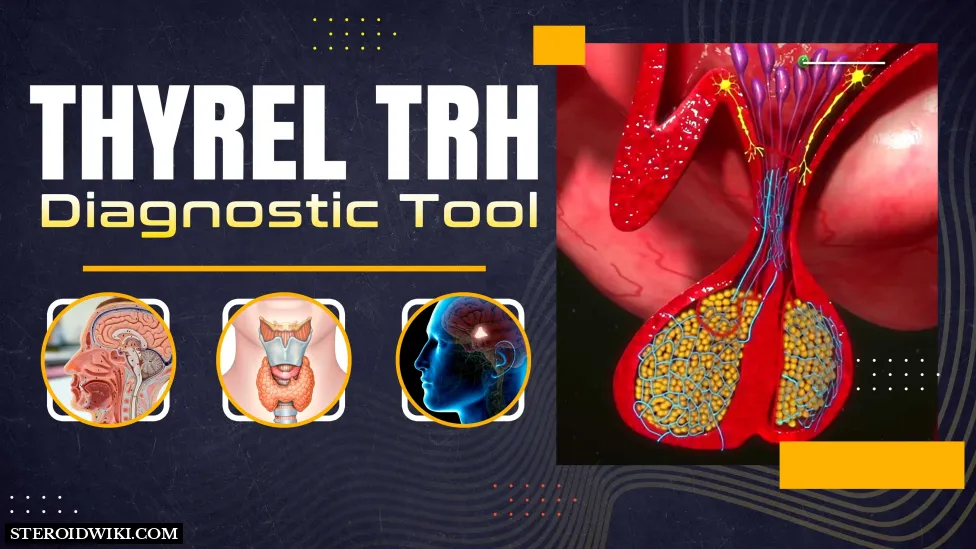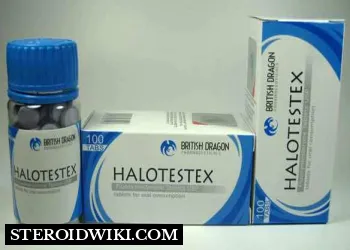Thyrel TRH (Protirelin): Complete Profile, usage, dosage, Advantages, Disadvantages, and storage
Thyrel TRH (Protirelin): A Diagnostic Agent for Thyroid and Pituitary Assessment
Protirelin, another name for Thyrel TRH, is a diagnostic tool that's used to assess pituitary, thyroid, and hypothalamus function. Generic versions of Thyrel TRH may still be accessible even after the brand name has been withdrawn. The various aspects of Thyrel TRH, including as its applications, adverse effects, dosage, and other crucial details, will be covered in detail in this article.
Table of Contents
Introduction
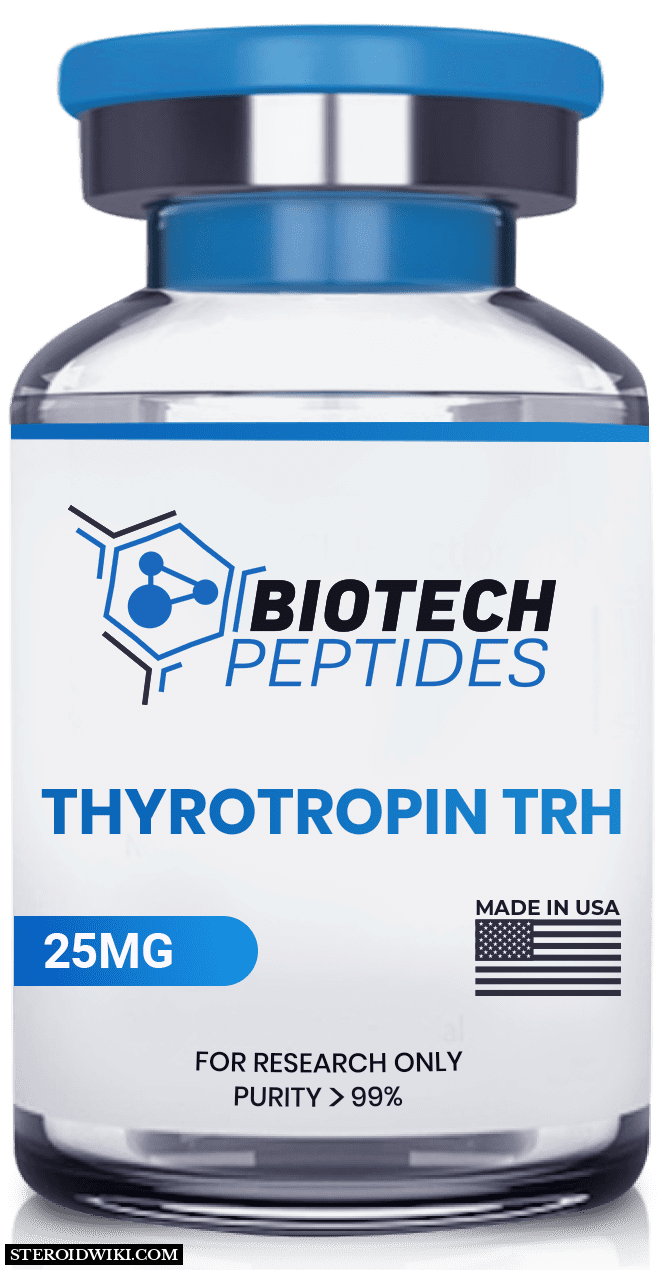
Diagnostic imaging agents are the class of drug that includes Thyrel TRH, sometimes referred to by its generic name Protirelin. It is thought that the structure of this synthetic tripeptide is exactly the same as that of the thyrotropin-releasing hormone that the hypothalamus naturally produces. Its main application is as a supportive treatment for thyroid dysfunction and pituitary or hypothalamic dysfunction diagnostic evaluation.
The fact that generic versions of Thyrel TRH are still available guarantees that this important diagnostic agent will continue to be available for use in medicine even if the brand name has been terminated.
Structure
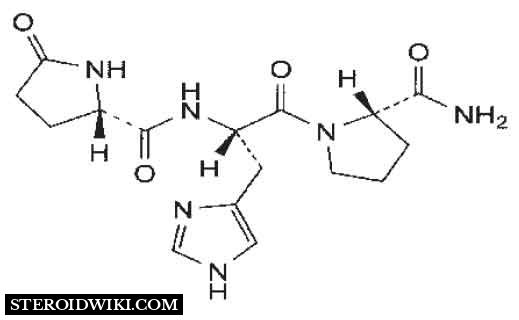
Uses of Thyrel TRH (Protirelin)
The main application of thyrel TRH is as a diagnostic technique to evaluate pituitary, hypothalamic, and thyroid function. This makes it an invaluable tool for comprehending and identifying a range of illnesses associated with these essential endocrine system components.
Thyroid Function Assessment
Assessing thyroid function is one of Thyrel TRH's main applications. Testing for thyrel TRH can give vital information about the thyroid's function and the presence of any anomalies or dysfunctions.
Evaluation of Hypopituitary Dysfunction
Additionally, pituitary function is evaluated by thyrel TRH. The pituitary gland is a minor but vital component of the endocrine system that is responsible for controlling hormone levels in the body. Assessing pituitary function can shed light on a number of hormonal conditions.
Assessment of Hypothalamal Dysfunction
Thyrotropin-releasing hormone (TRH) is produced by the brain area known as the hypothalamus. Thyrel TRH is useful in the diagnosis of hypothalamus function problems.
Adjustment of Thyroid Hormone Dosage
Patients with primary hypothyroidism can modify their thyroid hormone dose by using thyrel TRH as an adjuvant. It assists medical professionals in this situation in determining the proper dosage of thyroid hormone replacement treatment.
Advantages
Primarily utilized as a diagnostic tool, Thyrel TRH (Protirelin) has several advantages in the medical domain. Let's examine a few of these benefits:
Precise Diagnostic Instrument
In order to diagnose thyroid, pituitary, and hypothalamus disorders, thyrel TRH is essential. Through the assessment of these glands' reaction to the medication, medical professionals can acquire a significant understanding of a patient's endocrine condition..
Comprehensive Assessment
It offers a thorough understanding of the functioning of the endocrine system. This is particularly crucial in cases where conventional diagnostic testing yields unclear results, enabling medical professionals to make better treatment decisions.
Personalised Approach
Healthcare professionals are able to customize treatment strategies to each patient's unique requirements by evaluating the patient's reaction to Thyrel TRH. This customized approach may result in more focused and successful treatments.
Thyroid Hormone Replacement Monitoring
For individuals with primary hypothyroidism, thyrel TRH can be used to modify the dosage of thyroid hormone replacement therapy. It assists in guaranteeing that patients receive thyroid hormones at the proper dosage.
Evaluation of Thyrotropin Suppression
In patients with nodular or diffuse goitre, thyrel TRH is used to assess the efficacy of thyrotropin suppression with a particular dosage of T4. This aids in assessing if the thyroid is reacting to treatment as it should.
Rapid Onset of Effects
TSH levels rise swiftly and peak in 20 to 30 minutes after taking Thyrel TRH, indicating that the medication acts very quickly. The rapid onset of effects facilitates effective diagnostic evaluations.
Minimal Need for Fasting
In contrast to many diagnostic procedures that need prolonged fasting, Thyrel TRH testing usually involves fasting exclusively in individuals who have hypopituitarism. Patients getting the assessment will find it more convenient as a result.
Non-Invasive
Although there might be some adverse effects, intravenous administration of thyrel TRH is usually regarded as a non-invasive treatment. In some circumstances, this may be better than more intrusive diagnostic techniques.
Protirelin, also known as Thyrel TRH, has important advantages when it comes to evaluating and diagnosing thyroid, pituitary, and hypothalamus function. For patients with endocrine-related disorders, its function in delivering precise and customized diagnostic information is crucial in directing healthcare decisions and maximizing therapy regimens.
Side Effects of Thyrel TRH
As with many medications, Thyrel TRH (Protirelin) can have side effects. It's essential to be aware of these potential side effects and, in some cases, seek medical attention if they become severe. The side effects of Thyrel TRH can vary in severity, and not everyone experiences them. Common side effects include:
Dry Mouth
One typical adverse effect of Thyrel TRH is dry mouth. It's usually not severe and can be transient.
Headaches, nausea, and dizziness
It is possible for some people to feel lightheaded after taking Thyrel TRH. Other typical adverse effects of Thyrel TRH include headaches and occasionally nausea.
Changes in Taste
There have been reports of flavor shifts or an off-putting aftertaste.
Flushing
Flushing, or redness of the face or neck, is a possible adverse effect.
Constant Urination and cramping in the stomach
Some people could have frequent urges to go to the toilet. One possible adverse effect is stomach cramps or pain in the abdomen.
Variations in Pulse Pressure
Blood pressure variations, including both hypertension and hypotension, can be brought on by thyrel TRH.
Breast Enlargement
Breast augmentation is a possibility for certain women, particularly those who are nursing.
Anxiety and sweating
Some patients may experience anxiety. There have also been reports of sweating as a negative impact.
constriction in the throat
Some people could have a constriction in their throat.
Tingling or pressure in the chest
One of Thyrel TRH's negative effects is pressure in the chest. Certain patients may experience tingling.
It's crucial to remember that not everyone will suffer these side effects and that each individual may experience them to varying degrees. People using Thyrel TRH may occasionally develop severe adverse effects. If they encounter any of the following symptoms, they should consult a doctor right away:
Serious Side Effects:
- Difficulty Breathing
- Swelling of Face, Lips, Tongue, or Throat
- Fainting
- Temporary Vision Loss
- Serious Heart Symptoms
- Confusion, Slurred Speech, Weakness
These symptoms indicate serious side effects that should not be ignored. It's crucial to be aware of these potential side effects and seek prompt medical care when necessary.
Dosage of Thyrel TRH
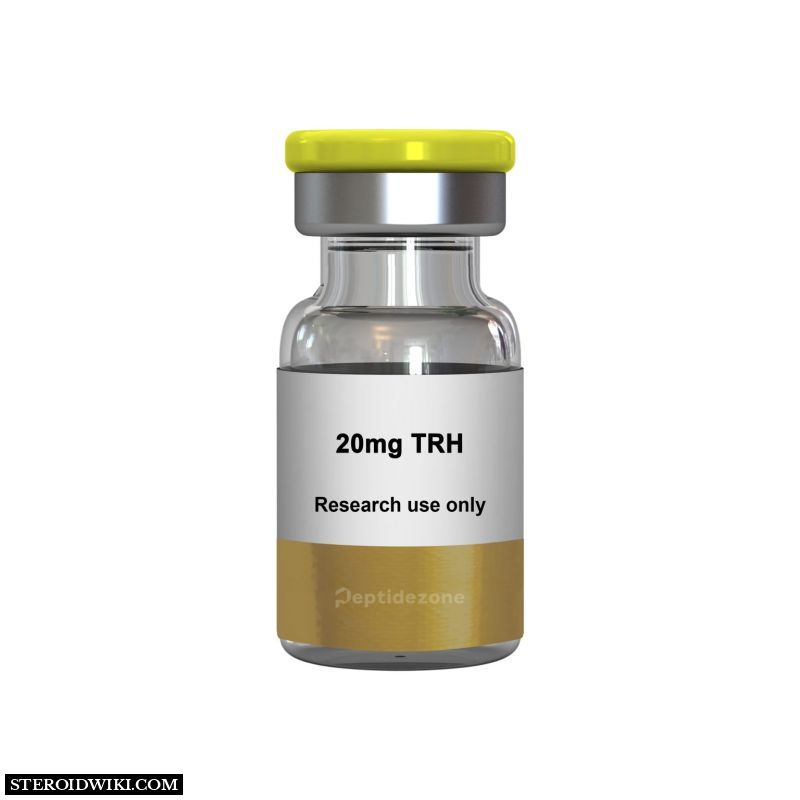
The dosage of Thyrel TRH varies depending on the patient's age and specific medical situation:
Adult Dosage: The standard adult dosage of Thyrel TRH is 500 µg (micrograms).
Children (Ages 6 to 16): For children between the ages of 6 and 16, the dosage is calculated based on body weight, with a maximum dose of 500 µg. The dosage is typically 7 µg/kg body weight.
Infants and Children (Up to 6 Years): Experience with Thyrel TRH in this age group is limited, and doses of 7 µg/kg have been administered.
It is critical to follow the dosage and administration recommendations given by a healthcare practitioner. One blood sample should be collected immediately before the injection of Thyrel TRH for thyroid-stimulating hormone (TSH) analysis, and a second sample should be drawn 30 minutes later. It is worth mentioning that repeated administration of Thyrel TRH can diminish the TSH response. If the Thyrel TRH test is repeated, a seven-day gap is advised.
Administration
Thyrel TRH (protirelin) administration is a well planned procedure to assure accurate test findings and patient safety. Here are the key dose and administration information:
- The patient is given thyrel TRH intravenously while they are in a supine position. This implies that when the medication is being given, the patient should be resting flat.
- Thyrel TRH is given as a single, somewhat quick dosage over the course of 15 to 30 seconds when administered as a bolus. This quick administration ensures that the medication enters the bloodstream as soon as possible.
- The patient should stay in the supine position until all planned post-injection blood samples have been collected after receiving Thyrel TRH. By doing this, the chance of problems resulting from variations in blood pressure is reduced.
- Prior to and during the first 15 minutes following the administration of Thyrel TRH, blood pressure should be taken. Blood pressure monitoring is a crucial safety precaution to quickly identify any notable changes.
- It is advisable to urge patients to pee before to receiving a Thyrel TRH injection. This is to make sure the blood samples aren't being impacted by any other causes.
Storage
Thyrel TRH should be stored at controlled room temperature between 15°C to 30°C (59°F to 86°F).
Conclusion
Protirelin, also known as thyrel TRH, is a useful diagnostic tool for evaluating thyroid function and associated endocrine system disorders. It is essential for determining the course of treatment and care for individuals with thyroid cancer as well as for detecting thyroid problems and assessing pituitary and hypothalamus function.
An established method that sheds light on thyroid function and hormone control is thyrel TRH testing. While administering Thyrel TRH under the supervision of a licenced healthcare professional is typically safe, it is crucial to follow dosage recommendations, blood sample procedures, and safety measures to guarantee correct results and patient safety.
Always seek personalised advice and suggestions from a competent healthcare expert when it comes to diagnostic testing and the management of thyroid and endocrine problems.
References
- Merative, M., 2023. mayoclinic. [Online] Available at: https://www.mayoclinic.org/drugs-supplements/protirelin-intravenous-route/description/drg-20065657
[Accessed 1 2 2023]. - Thyrotropin-releasing hormone TRH: Pi (no date) Drugs.com. Available at: https://www.drugs.com/pro/thyrotropin-releasing-hormone-trh.html (Accessed: 06 october 2023).
- Protirelin National Center for Biotechnology Information. PubChem Compound Database. Available at: https://pubchem.ncbi.nlm.nih.gov/compound/protirelin
- Protirelin (intravenous route) description and brand names (2023) Mayo Clinic. Available at: https://www.mayoclinic.org/drugs-supplements/protirelin-intravenous-route/description/drg-20065657
- Thyrel TRH (Protirelin): Uses, dosage, side effects, interactions, warning (2022) RxList. Available at: https://www.rxlist.com/thyrel-trh-drug.htm
Disclaimer: SteroidWiki doesn't promote unlawful usage of any chemical compound. The knowledge presented in this article and on the website is purely for educational purposes. If you intend to use the information provided in this article for any purpose, please make sure to check & comply with the laws of your country or area.

